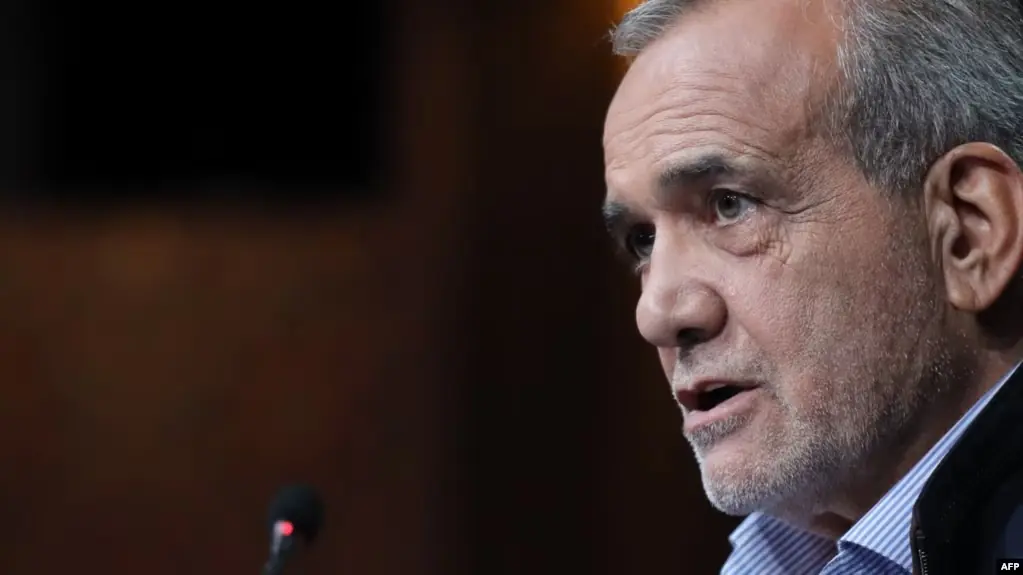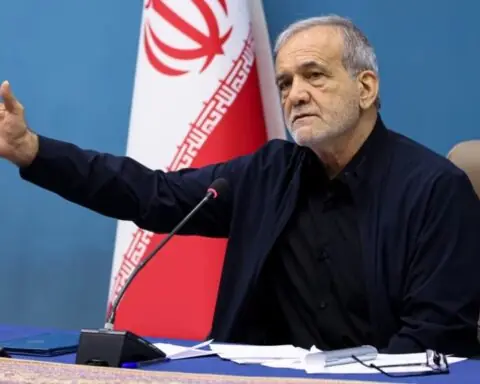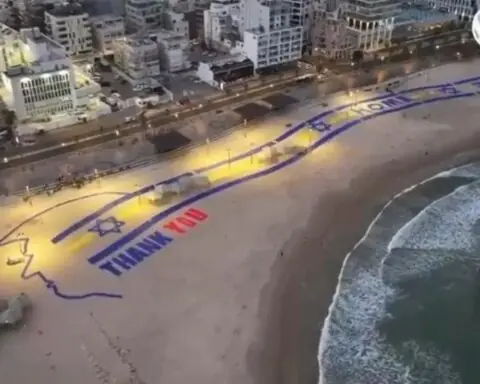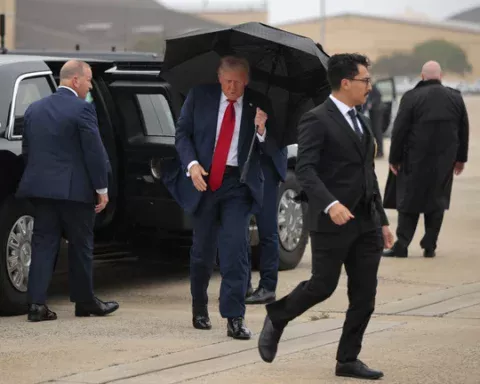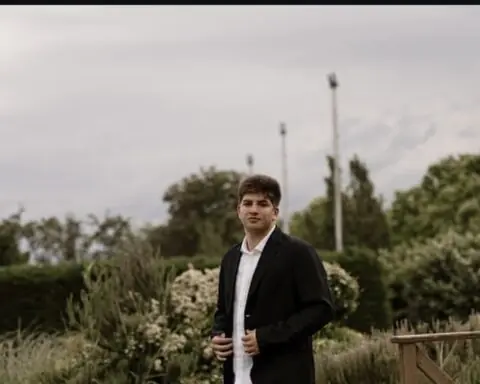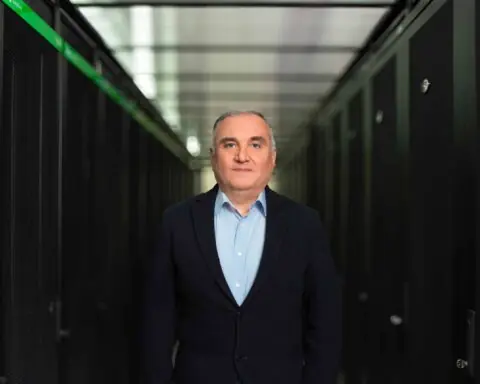Moderate reformist Masud Pezeshkian, the winner of Iran’s runoff presidential vote, has thanked young Iranians for helping him win as foreign leaders and members of the Iranian establishment congratulated him on his victory, while Washington dismissed the impact of the results.
Pezeshkian, a 69-year-old former heart surgeon, defeated ultraconservative hard-liner Saeed Jalili in the July 5 runoff, garnering 53.7 percent of the vote, or 16,384,403 votes, while Jalili received 44.3 percent, or 13,538,179 votes, according to results announced by Mohsen Eslami, the spokesman of Iran’s election headquarters.
“I am especially grateful to the dedicated and capable young people who came to work lovingly and sincerely on my team and together with the rest of the people shone a ray of hope and confidence in the future,” the 69-year-old former heart surgeon wrote on X.
Pezeshkian’s victory came amid a turnout of 49.8 percent, considerably higher than the record-low 40 percent in the first round of the election, which was triggered by the death of President Ebrahim Raisi in a helicopter crash in May.
Social media videos purported to show Pezeshkian’s supporters, mostly young people, taking to the streets of Tehran and other Iranian cities to celebrate, even before the final results were announced.
Pezeshkian, however, warned that a “difficult path” lies ahead for the Islamic republic and appealed to Iranians not to leave him “alone” as he begins his presidency in a country beset by economic hardships compounded by international sanctions and dominated by a repressive theocracy.
“The difficult path ahead will only become smoother with your companionship, empathy, and trust. I extend my hand to you, and I swear on my honor that I, in turn, will not leave you alone on this path,” Pezeshkian wrote in a separate message.
Voting on July 5 had been scheduled to end at 6 p.m., but it was extended three times until midnight as authorities sought to encourage as many people as possible to go to the polls.
The first round failed to generate widespread participation, despite calls by Supreme Leader Ayatollah Ali Khamenei, who wields ultimate power in Iran, for a high turnout to project an image of a strong Iran where its people back the political establishment.
Khamenei, who has final say in Iran’s politics, congratulated Pezeshkian, calling for unity.
“I call on everyone to work together,” said Khamenei, who had called the runoff vote “very important.”
Hossein Salami, the chief of Iran’s powerful Islamic Revolutionary Guards Corps (IRGC), also welcomed Pezeshkian’s victory, offering his “cooperation” to the incoming president.
“We are fully prepared to continue and strengthen the cooperation and interaction between the IRGC and the government,” Salami said in a statement.
Iran’s theocracy, installed after the Islamic revolution of 1979, has long maintained that it derives its legitimacy from strong popular support that translates into high voter turnout, but poor participation in recent elections and deadly antiestablishment protests have challenged the legitimacy of the current leadership.
Pezeshkian has been a member of parliament since 2008 and served as deputy speaker between 2016 and 2020, when moderates and reformists had a majority in the legislature.
Pezeshkian questioned Iran’s methods of enforcing the Islamic head scarf for women following the death of 22-year-old Mahsa Amini in 2022 while in the custody of Iran’s dreaded morality police for allegedly wearing her hijab improperly.
After Amini’s death, which sparked months of unrest across the country, Pezeshkian demanded clarification from authorities about her case.
After casting his vote during the first round last week, Pezeshkian said, “We will respect the hijab law, but there should never be any intrusive or inhumane behavior toward women.”
Pezeshkian has also spoken in favor of negotiating with the West, but he also supports the principles of the Islamic republic and said he would follow Khamenei’s policies if elected.
While Pezeshkian’s victory is unlikely to result in major policy shifts, it could have an impact on the succession to the 85-year-old Khamenei, who has been Iran’s supreme leader since 1989.
Khamenei now has to give his approval to Pezeshkian’s win in a ceremony known as “tanfiz.”
Following that ceremonial step, the new president’s inauguration is expected to take place sometime between July 22 and August 5.

Pezeshkian, who finished the first round with 10.5 million votes — 1 million more than Jalili — appears to have been the one who benefited from the larger turnout in the second round, finishing the runoff with nearly 3 million votes more than his opponent.
His campaign had sought to increase turnout by convincing people who boycotted the first round to vote in the runoff.
Mohammad Mohammad-Rezaei, a former lawmaker from Iran’s Kurdistan Province who worked for Pezeshkian’s campaign, told RFE/RL’s Radio Farda that Pezeshkian’s main advantage has been his galvanizing power among all walks of life.
“One of the merits of Pezeshkian is that he is a patriot and his character transcends party politics. He is above political parties, fronts, and groups,” Mohammad-Rezaei said.
His supporters attempted to highlight what they saw as the dangers of a hard-line figure like Jalili coming to power, arguing that his administration would enact repressive policies and further isolate Iran.
Jalili’s supporters portrayed Pezeshkian as a man who is soft on the West and who would make Iranian progress dependent on good relations with Western nations.
The U.S. State Department, in comments to RFE/RL’s Radio Farda, noted the results but said that elections in Iran are neither free or fair.
“As a result, a significant number of Iranians chose not to participate at all,” a spokesman said. “We have no expectation these elections will lead to fundamental change in Iran’s direction or more respect for the human rights of its citizens. As the candidates themselves have said, Iranian policy is set by the supreme leader.
“The election will not have a significant impact on [Washington’s] approach to Iran either. Our concerns about Iran’s behavior are unchanged. At the same time, we remain committed to diplomacy when it advances American interests.”

Russian President Vladimir Putin and Chinese President Xi Jinping both congratulated Pezeshkian on his victory.
“I hope that your tenure as president will contribute to a reinforcement of constructive bilateral cooperation between our friendly peoples,” Putin said.
Russia and Iran, both under harsh Western sanctions, can “coordinate efforts to resolve international issues in a constructive manner,” Putin added.
Iran has been supplying Russia with drones that Moscow has been using to attack mainly civilian targets in Ukraine since the Kremlin started the invasion of its neighbor in February 2022.
“I attach great importance to the development of China-Iran relations and am willing to work with the president to lead the China-Iran comprehensive strategic partnership towards deeper advancement,” state news agency Xinhua quoted Xi as saying.
China is Iran’s largest trade partner and a main destination for Tehran’s sanctioned oil.
King Salman of Saudi Arabia, Iran’s regional rival, in a message to Pezeshkian, expressed hope for the “continued development of relations which link our two countries and our two brotherly peoples,” according to the official Saudi Press Agency (SPA).
The powerful Saudi crown prince also congratulated Pezeshkian on his election.
“I affirm my keenness on developing and deepening the relations between our countries and people and serve our mutual interests,” SPA quoted Muhammad Bin Salman as saying.
Last year, Saudi Arabia and Iran agreed in a China-brokered deal to restore diplomatic ties after years on interruption.
Indian Prime Minister Narendra Modi also congratulated Pezeshkian.
“Looking forward to working closely with you to further strengthen our warm and long-standing bilateral relationship for the benefit of our peoples and the region,” Modi wrote on X.




